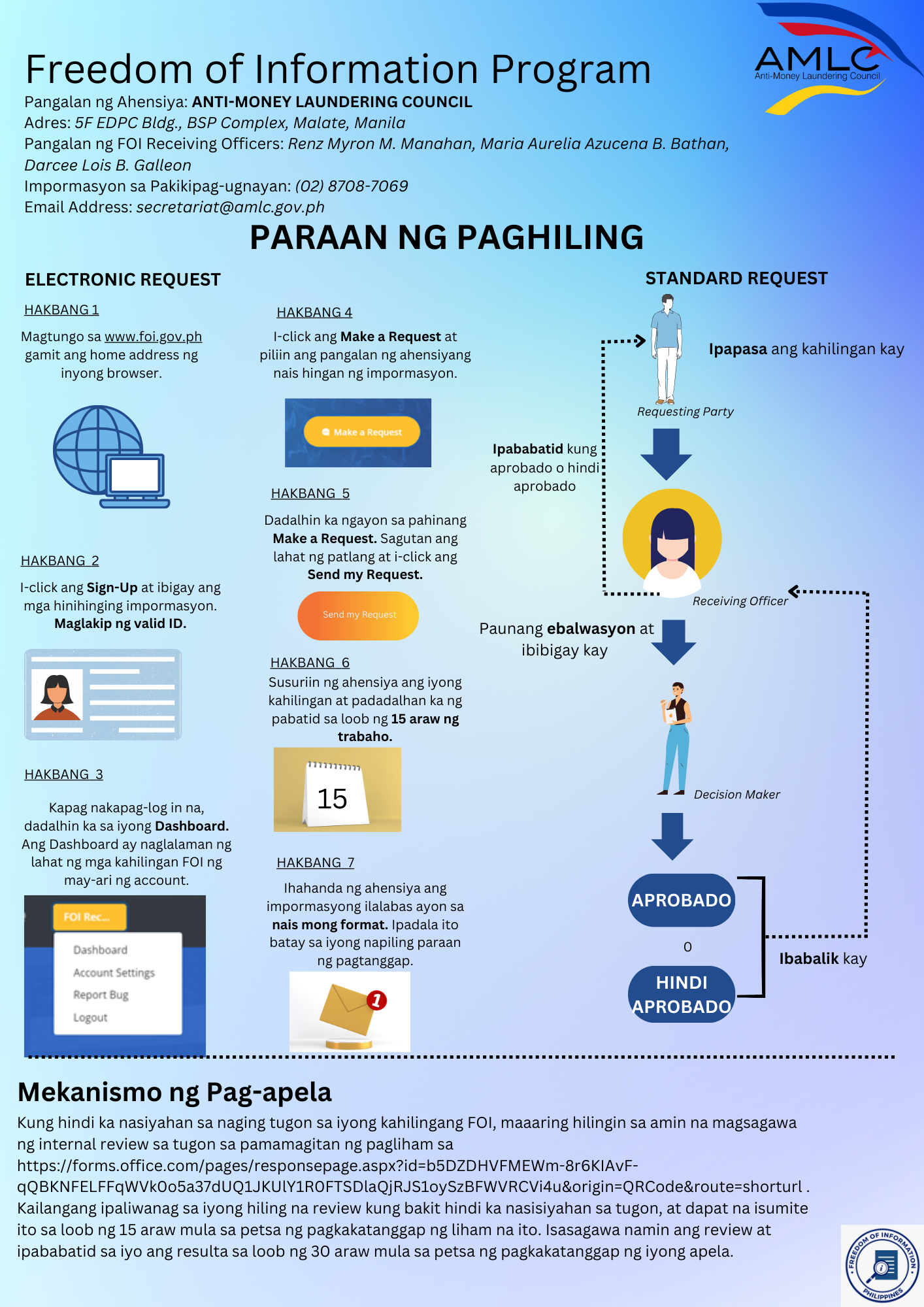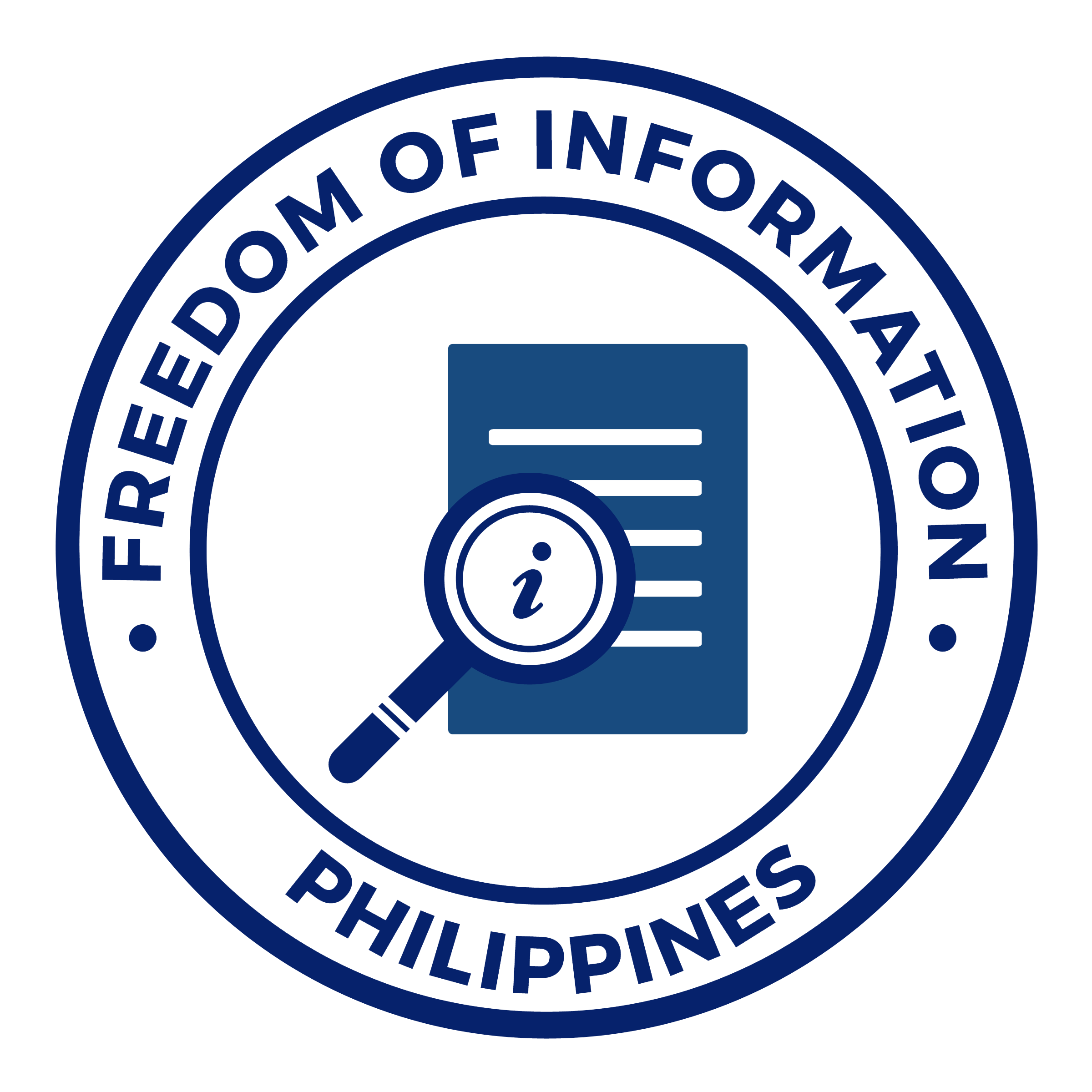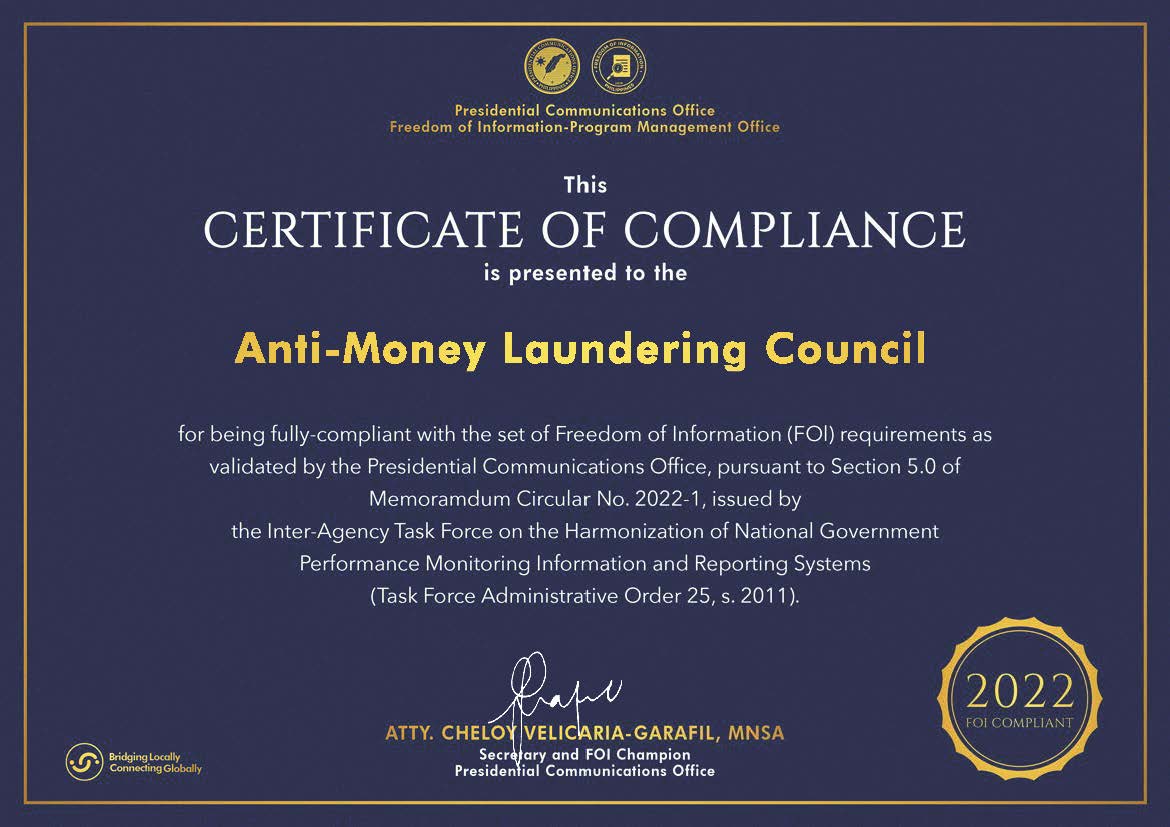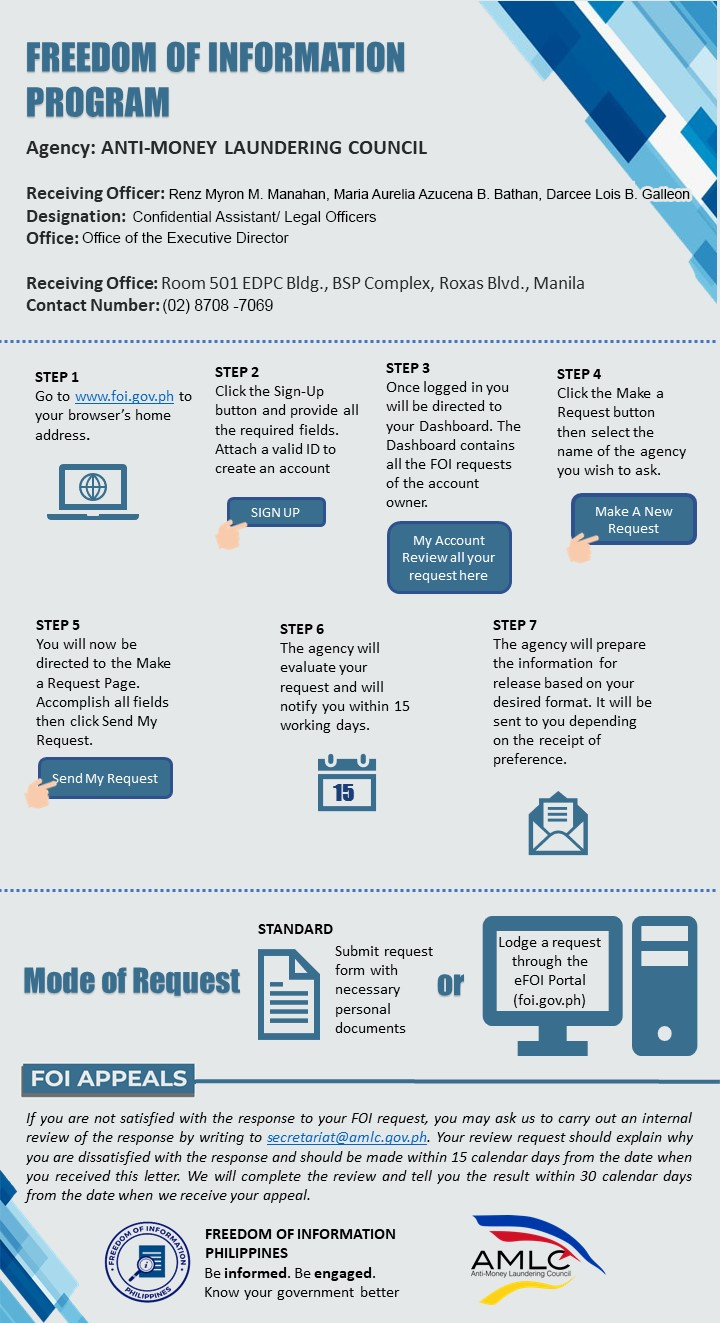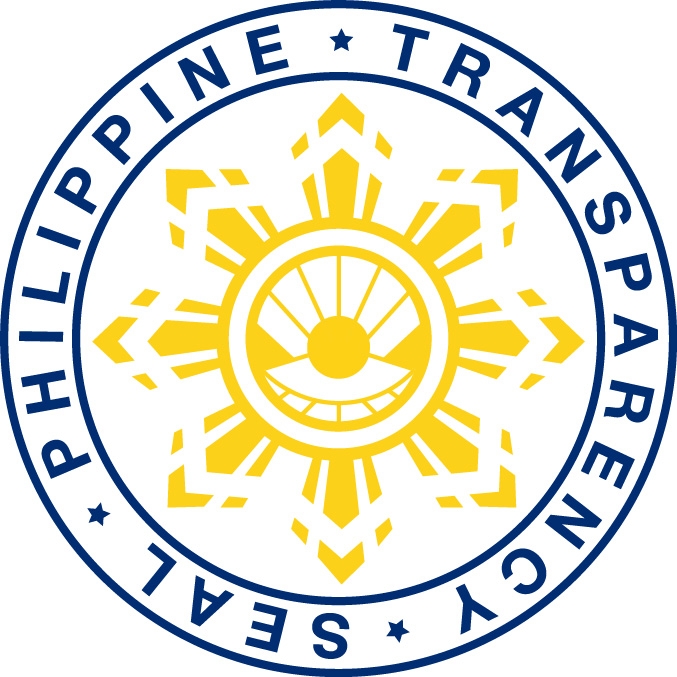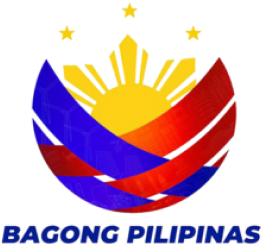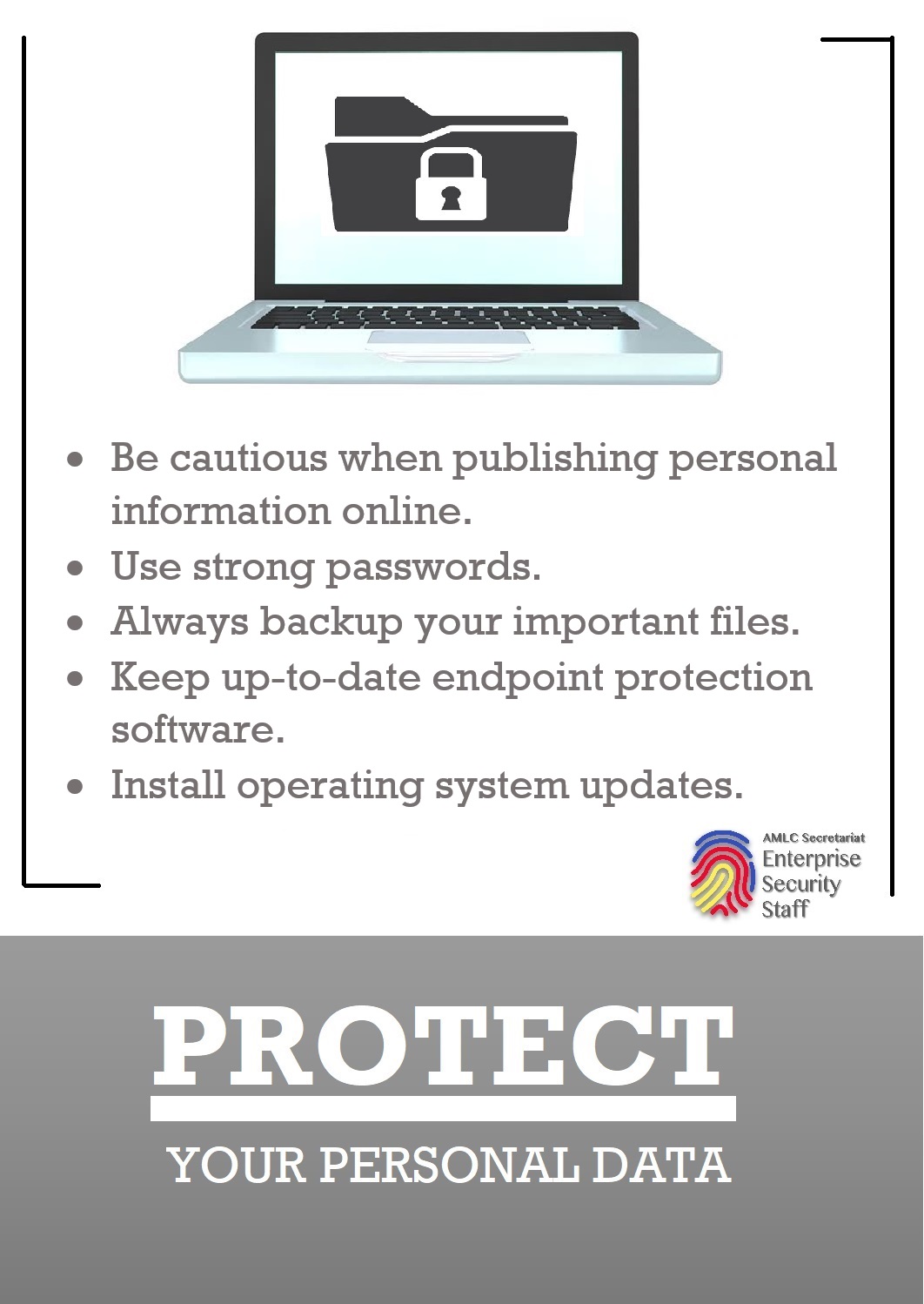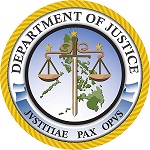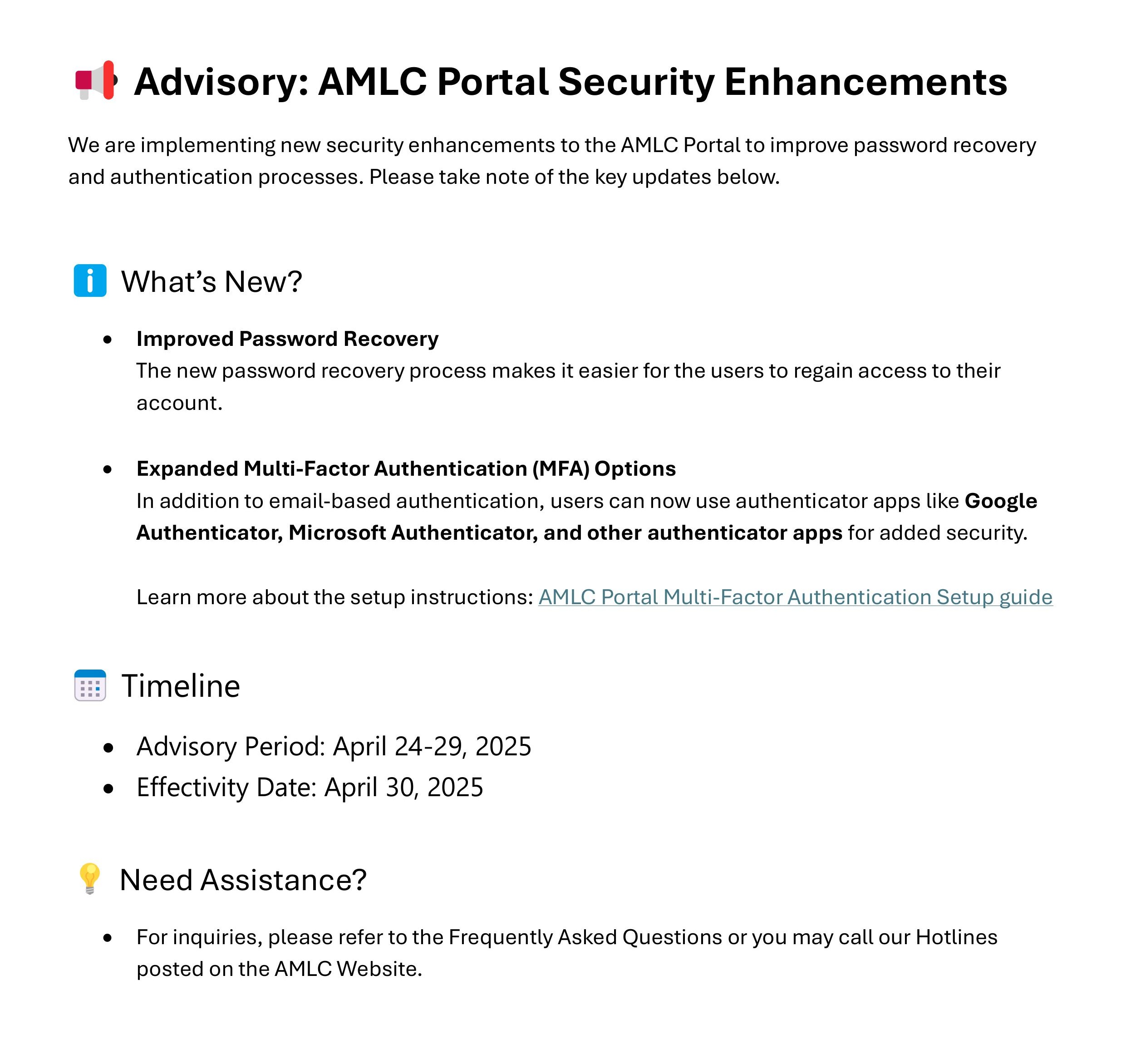|
The Anti-Money Laundering Council (AMLC) warns the public to remain vigilant in light of the rising incidents of use of fraudulent documents and communications by individuals or entities misrepresenting to be coming from, connected with, or related to the Anti-Money Laundering Council (AMLC).
These unscrupulous individuals and entities usually use the AMLC’s official seal/logo in their letters, notices, e-mails, messages, and other documents and communications, and sign with the names or signatures of AMLC officers or staff—present, past, or even fictitious—to obtain financial benefits or personal information. Further, they create fake Telegram, Facebook, Messenger, Viber, or Whatsapp accounts using the AMLC’s official seal/logo to coerce their victims to enter into a loan agreement or pay out a certain sum for the release of inexistent funds or parcels.
The AMLC vehemently denies ownership of these kinds of documents and communications. In this regard, the AMLC urges the public to refrain from dealing with these scammers or fraudsters.
The act of maliciously using the official seal/logo of, and misrepresenting the AMLC or any of its personnel or units is punishable under the law. The public is strongly encouraged to verify the authenticity of documents and messages received from, or transactions carried out with, supposed AMLC representatives.
The AMLC does NOT have social media accounts and can ONLY BE CONTACTED by the public through the following official contact details:
ANTI-MONEY LAUNDERING COUNCIL
Address: 5/F EDPC Building, BSP Complex, A. Mabini corner P. Ocampo Sts., Malate, Manila, Philippines
Contact Number: (+632)8708-7066
E-mail Address: This email address is being protected from spambots. You need JavaScript enabled to view it.
The public is advised to report incidents of online scams and other fraudulent activities to the following government offices:
- Philippine National Police-Anti-Cybercrime Group (PNP-ACG) at (632)8723-0401 Local 7491 and This email address is being protected from spambots. You need JavaScript enabled to view it.;
- National Bureau of Investigation (NBI)-Cybercrime Division at (632)8252-6228 and This email address is being protected from spambots. You need JavaScript enabled to view it.;
- NBI-Fraud and Financial Crimes Division of the NBI at (632)8525-4093 and This email address is being protected from spambots. You need JavaScript enabled to view it.; or
- Bangko Sentral ng Pilipinas at (632)5306-2584, (632) 8708-7087 and This email address is being protected from spambots. You need JavaScript enabled to view it., in cases of financial account scams, including money muling and social engineering activities.
|
Pinag-iingat ng Anti-Money Laundering Council (AMLC) ang publiko sa tumataas na insidente ng paggamit ng mga dokumento at komunikasyon ng mga indibidwal o grupo na nagpapanggap na galing, konektado, o may kaugnayan sa AMLC.
Ang mga taong ito ay kadalasang ginagamit ang tatak ng AMLC sa mga “Notice”, “Letter”, o “Notification” at gumagamit ng pangalan at lagda ng empleyado, opisyal, o kinatawan ng AMLC. Gumagawa din ang mga kawatan ng mga fake na Facebook Messenger, Telegram, Whatsapp, o Viber AMLC accounts upang makapanlinlang ng publiko. Pinapayuhan ang publiko na suriing mabuti ang mga mensaheng natatanggap o transaksyong inaalok mula sa mga ito.
Mariing itinatanggi ng AMLC ang anumang komunikasyon o dokumentong nagsasabi na kinakailangan magbayad ng penalty para sa paglabas, paglilipat ng pondo (fund transfer) at /o paglabas ng mga kalakal, premyo at pera. Hinihimok ng AMLC ang publiko na iwasang makipag-ugnayan sa mga nasabing manloloko.
Ang mapanlinlang na paggamit ng tatak ng AMLC, at ang pagpapanggap biling kawani ng AMLC ay may kaukulang kaparusahan sa batas. Ang publiko ay mariing hinihikayat na busisiing mabuti ang pagiging tunay ng mga dokumento at mensahe na natatanggap, o ang mga transaksyong ipinapatupad ng mga nagpapanggap na kawani ng AMLC.
Ang AMLC ay WALANG FACEBOOK MESSENGER, TELEGRAM, WHATSAPP, o VIBER. Ang tanging paraan para i-contact ang AMLC ay sa pamamagitan ng pagtawag o pagsulat sa:
ANTI-MONEY LAUNDERING COUNCIL
Address: 5/F EDPC Building, BSP Complex, A. Mabini corner P. Ocampo Sts., Malate, Manila, Philippines
Contact Number: (+632)8708-7066
E-mail Address: This email address is being protected from spambots. You need JavaScript enabled to view it.
Ang paggamit ng tatak ng AMLC at ang pagpapapanggap bilang kinatawan nito ay labag sa batas at may kaukulang parusa.
Pinapayuhan ang publiko na ipaalam o i-report ang mga online scam at ibang panloloko sa mga sumusunod:
- Philippine National Police-Anti-Cybercrime Group (PNP-ACG): (632)8723-0401 Local 7491 at This email address is being protected from spambots. You need JavaScript enabled to view it.;
- National Bureau of Investigation (NBI)-Cybercrime Division: (632)8252-6228 at This email address is being protected from spambots. You need JavaScript enabled to view it.;
- NBI-Fraud and Financial Crimes Division of the NBI: (632)8525-4093 at This email address is being protected from spambots. You need JavaScript enabled to view it.; o
- Bangko Sentral ng Pilipinas (BSP): (632)5306-2584, (632) 8708-7087 at This email address is being protected from spambots. You need JavaScript enabled to view it. kung ang insidente ay kaugnay sa mga ilegal na aktibidad sa ilalim ng Anti-Financial Account Scamming Act, tulad ng money muling at social engineering.
|


 REVISED 2 3.jpg)

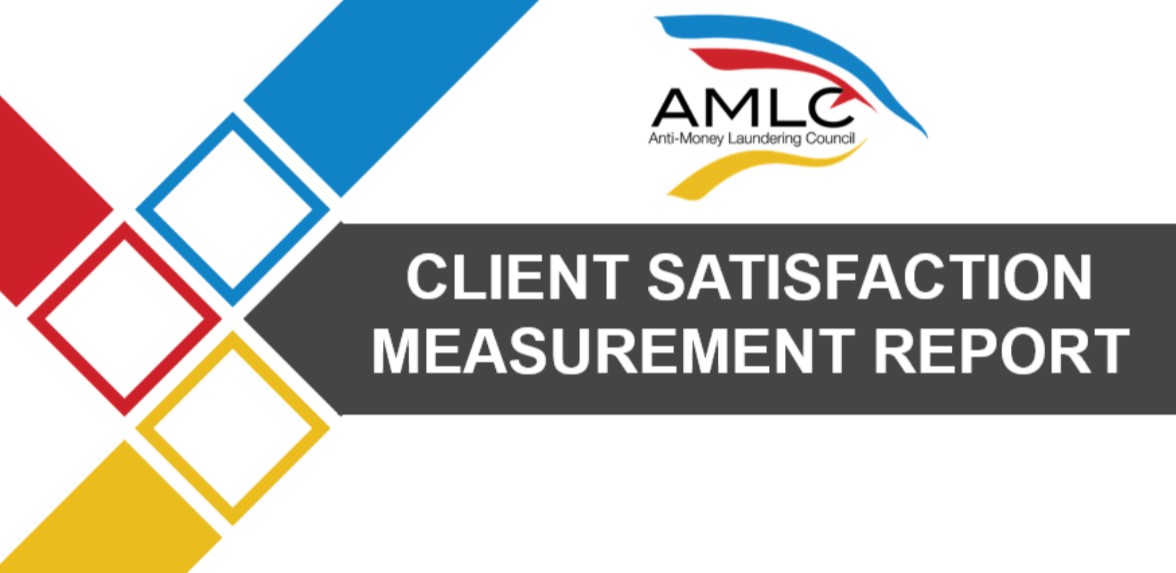 2024 (First Edition)
2024 (First Edition)